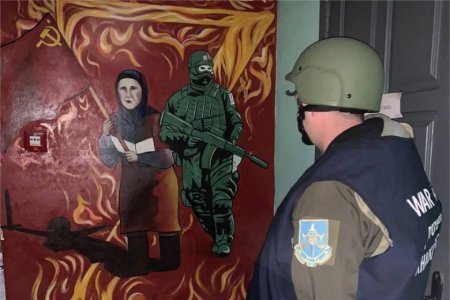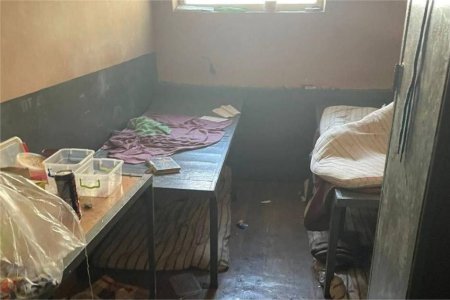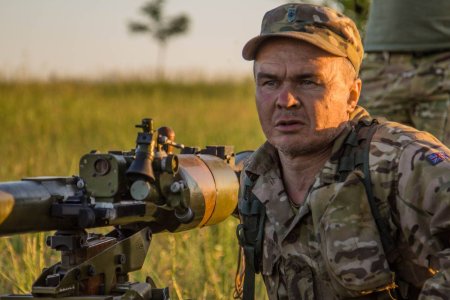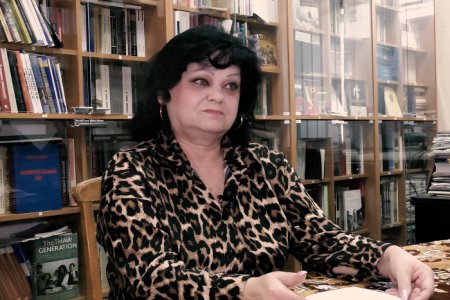My name is Olha Ivanenko, I live in Moshchun. When the war started, my whole family lived in our own private house: me, my husband, our child, grandparents, sister, brother-in-law, niece and my brother.
How the war started for you?
It was terrifying! The first thing we saw were Russian helicopters. We were outside and saw them flying towards the airport in Hostomel. I did not know the exact number, but we counted about 36 helicopters. And then we heard explosions and saw smoke coming from the direction of Hostomel. We were very scared. We understood that we had to flee, so we started to pack our things. In the evening, we wanted to leave, but in the end, we decided to stay. The next day we had to pick up my grandfather from the hospital (he was there before the war started). He called us and asked us to come and get him because many of our wounded fighters from Hostomel had been brought to the hospital and he had already been taken out of his room and put in the corridor. There were no empty rooms in the hospital, there were wounded soldiers everywhere. When we went to the hospital, we saw soldiers and military equipment everywhere, it was very frightening: there were corpses on the road, the bridge was almost destroyed. In the end we managed to get my grandfather home. That night we slept in the house, but there was shelling, so we ran and hid in the basement. And the next morning the Russian military was already in Moshchun, so we decided to flee but my grandfather decided to stay in Moshchun.
Was there shelling in Moshchun in the first days of the war?
Yes, from the first day they (the Russian troops) started shooting at us. There were a lot of Russian soldiers in Moshchun. They were fished out of the village for a long time afterwards.
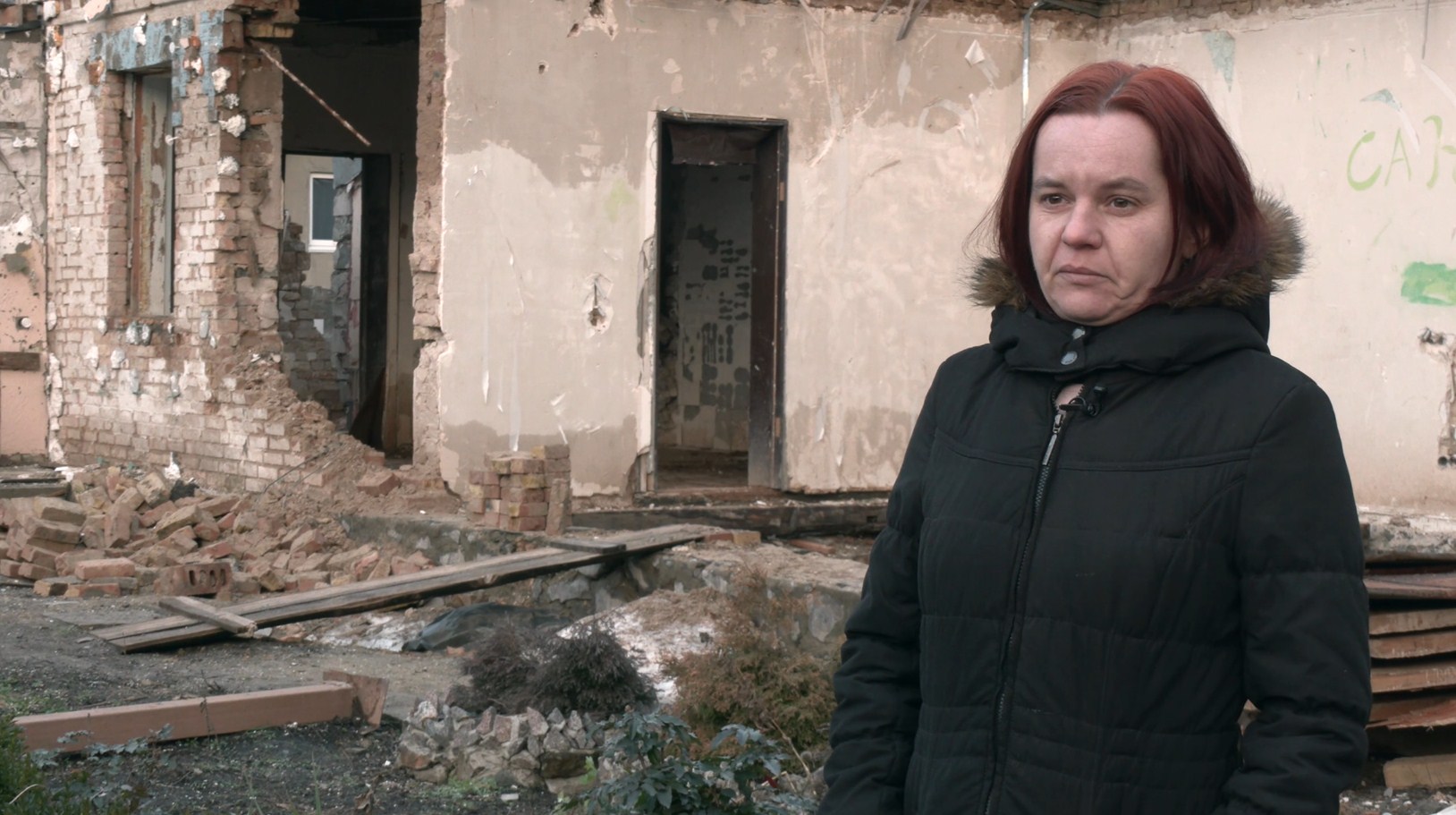
Why didn’t your grandfather want to evacuate with you?
Grandpa didn’t want to go, we tried to persuade him to go with us, but he wouldn’t. Then volunteers came to pick him up later, but he told them he wanted to stay. Then people told us that on the 8th of March (2022) they saw smoke coming from the house: apparently, he stoked the fireplace and was still alive. But since the 10th of March, when there was very heavy shelling in Moshchun and Russian tanks were firing directly at the houses, nobody heard or saw Grandpa. After a while we found out that he had been shot. We had pictures, but we deleted them because they were terrible. You could clearly see three holes in his head, bullets coming out through his body. It was very frightening. The body lay in the house for a month and a half.
Under what circumstances did the Russian soldiers shoot your grandfather?
We still don’t understand. He was 74 years old and disabled. He hadn’t done anything wrong to anyone. He lived his life... Nobody knows why it has happened and we will never know.
Are you aware of other cases of war crimes committed by the Russians against Ukrainian civilians in Moshchun?
Many people were tortured in our village. One woman was tied to a tree, and people say she was raped. I saw the video: she was tied to a tree already dead. I know that a man from our village was shot, someone is still missing. And an old lady was found dead on the stairs near her basement... We still don’t know if she died of a heart attack or if she was killed.
How did you find out that your house had been destroyed?
We heard on the news that Moshchun had been bombed. And later my sister came to Moshchun and sent us pictures of our destroyed house. She said we don’t have a house anymore.
What exactly was damaged?
The whole house was destroyed. Everything in the house was damaged: the TV, the fridge, etc.
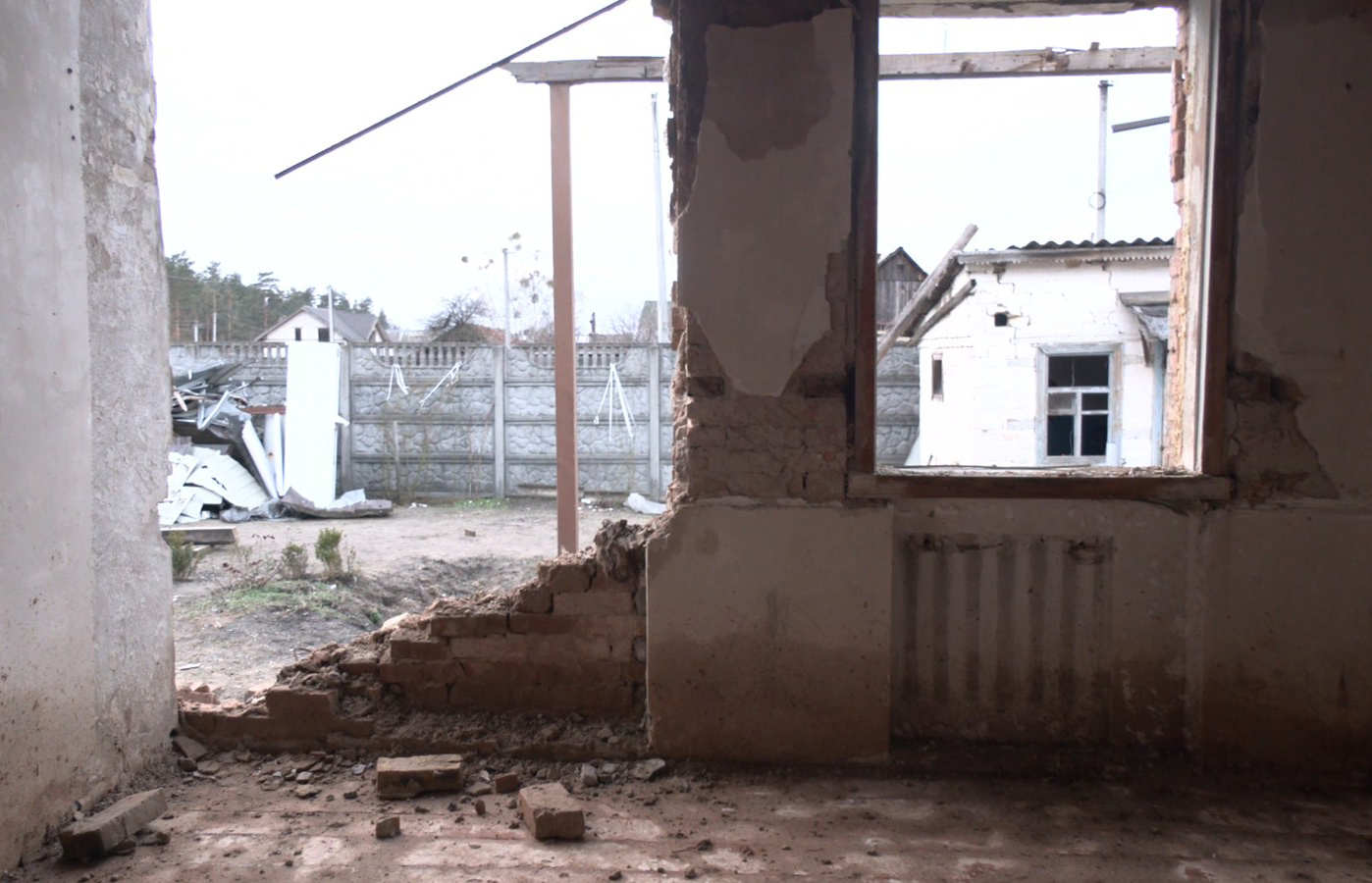
Could you have imagined such a horror?
No! Even when we saw the Russian helicopters, when we already knew that they had attacked the airport in Hostomel, we thought that they would destroy the airport and the military units and then leave. But they (the Russian military) wanted to go further — they wanted to invade Kyiv. When they were already here, we also hoped that they would not hurt anyone, but because they could not reach Kyiv, they decided to destroy the village.
How many shells hit your house?
By our count, there were four on one side of the house, one on the other side of the house, three in the yard, and one hit the gate.
What are your plans for the future?
We have to move on: at least rebuild our house... We have no other choice because we get no help from the state. So, what we can do ourselves, we will do...
Do volunteers help you?
Volunteers help with food: not as much now as at the beginning of the war, but they still help.
What did you feel when you heard about Moshchun’s liberation?
I felt relief in my soul. I realised that our village was liberated and that we could return home, but I was scared because everything was still mined. And, by the way, many places here are still mined. The sappers are still working actively in order to eliminate the mines. When I remembered that time, I was scared, but I also wanted to go home. My grandmother returned to Moshchun before me. She called me and told me to come back, but I didn’t go right away because I was scared. Of course, first of all I was afraid for my child, so that she would not run away somewhere in the forest, where there are many mines.
Has your attitude towards the Russians changed?
Yes, it has! It would be better if they didn’t exist.
Translation: International Society for Human Rights (German Section)
